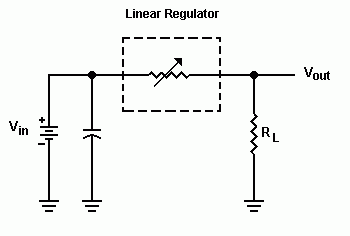دانلود کتاب Linear and Switching Voltage Regulator Fundamentals
Linear Switching Voltage Regulator Fundamentals
LINEAR VOLTAGE REGULATORS
This paper will enable the user to understand the operation of switching and linear voltage regulators. The most commonly used regulating modes will be covered. For linear regulators, the Standard, Low-Dropout, and Quasi Low-Dropout regulators will be covered (along with circuit examples). In the switching regulator section, the Buck, Buck-boost, Boost, and Flyback topologies will be detailed. Some examples will be given of products available for the design and implementation of switching converters.
The linear regulator is the basic building block of nearly every power supply used in electronics. The IC linear regulator is so easy to use that it is virtually foolproof, and so inexpensive that it is usually one of the cheapest components in an electronic assembly. Linear Switching Voltage Regulator Fundamentals book will present information that gives the user greater understanding of how a linear regulator works, and will help to de-mystify regulator specifications and applications. Some typical circuits will be presented to highlight the commercial regulators that are currently available. The primary focus of the new product examples is in the area of Low-dropout regulators, which offer great advantages over standard regulators in many applications. Every electronic circuit is designed to operate off of some supply voltage, which is usually assumed to be constant. A voltage regulator provides this constant DC output voltage and contains circuitry that continuously holds the output voltage at the design value regardless of changes in load current or input voltage (this assumes that the load current and input voltage are within the specified operating range for the part).
Chester Simpson Member of Technical Staff
Power Management Applications



